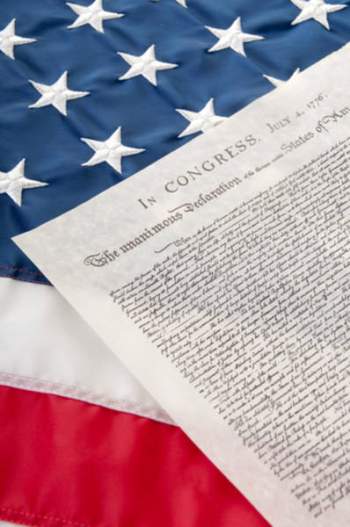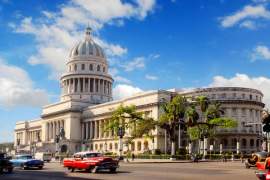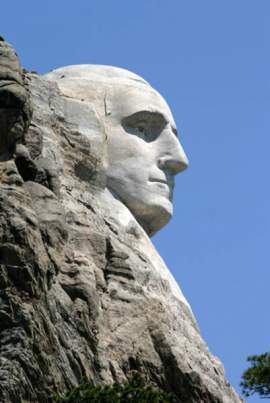
A Complete Overview of the Preamble

Popular In Constitution
Purpose Of Lifetime Appointment And Pros And Cons Enumerated Powers Bicameral Legislature Background Article 3 Of The Constitution We The People 1st Amendment Who Wrote The Constitution Judicial Review Equal Protection Clause 5th Amendment 10th Amendment Three Fifths Compromise
The Preamble to the United States Constitution is one of the most well-known and oft-quoted parts of the entire Constitution, if only for the opening quote of "We the People..." It is, based purely on length, a relatively insignificant part of the Constitution as a whole and yet, based on meaning, it is highly significant.
The Preamble helps scholars, lawyers, and lawmakers to understand the Constitution as a whole, in its intent, its basic meaning, and its fundamental tenets. While the Preamble is not critical to the function of the Constitution for establishing the Government of the United States, it has come up time and again in court proceedings and will likely continue to arise long into the future.
Background
The Preamble was not actually written with the rest of the Constitution. The Constitution was submitted to a Style Committee after a first draft and that Committee finalized the Constitution's writing and also added the Preamble to the Constitution's beginning. As such, the Preamble does not add any definitive legal powers to the nature of the Constitution.
The importance of the Preamble comes, instead, from what it adds to interpretations of the Constitution as a whole. The Preamble has been an oft-debated bit of the Constitution, even though it is so short, because it uses several terms, each of which might be understood in multiple ways. Again, the Preamble does not offer up a concrete, definitive set of legal provisions, but it does influence the way in which the terms and legal definitions offered up elsewhere in the Constitution might apply.
If "The United States of America" is interpreted to mean different things based on the nature of the Preamble, then those differing interpretations would have major ramifications in any given party's understanding of the Constitution as a whole. For example, the phrase "to form a more perfect Union" was debated often and actually came into great relevance with regard to the Civil War when states were attempting to secede from the Union. The nature of the phrase, then, greatly influenced lawmakers' understanding of whether or not such secession was legal, which had even greater significance with regard to the aftermath of the Civil War. To find out more about the Preamble and some of the important terms included within, follow the link.
Importance of "We the People"
The phrase "We the People" at the very beginning of the Preamble and the entire Constitution is one of the most well-known phrases of the Constitution. It bears special significance to the Preamble and to the Constitution as a whole for its implications and its uniqueness. "We the People" establishes firmly that the Constitution is not a document dictating regulation of states by some larger Federal Government. It is a document establishing a government which deals with the people directly, and therefore, would overrule any state dealings with the people. It also establishes, importantly, that the power of the Government comes from no other source than the people themselves, who agree to exist under the rules of the Constitution in exchange for the rights and benefits which it provides.
"We the People" thus immediately sets apart the Constitution from many of its forebears, including the Articles of Confederation in America and even other constitutional documents throughout history. The phrase is also one of the primary links between the Constitution and the other document which is known by almost every American: the Declaration of Independence.
The Declaration of Independence has no legal bearing in modern day America; for all that it is a significant historical document, it is not an important legal document. But one of the primary ideas of the Declaration of Independence was that the people had the right to rise up against an oppressive government, as that government gained its power from the people. This concept was carried over into the Constitution through the "We the People" phrase in the Preamble, thus strongly exhibiting the intent behind the Constitution. For more information about the significance of "We the People" to the entire Constitution, click the link.
Jacobson v. Massachusetts (1905)
Jacobson v. Massachusetts was an important case in American case law for a number of reasons. It significantly affected American understanding of what states could force citizens to do in the name of the public good. It affected American understanding of health care and the reasons for its importance. But it also affected American understanding of the Preamble, codifying one of the more important elements of interpreting that document.
Jacobson v. Massachusetts was a case in which one man, Jacobson, refused to be vaccinated under a Massachusetts statute requiring vaccination, and furthermore refused to pay the fine that came with a refusal to get vaccinated. He took Massachusetts to court, claiming that the statute violated his rights. He argued, among other points, that the laws implemented by Massachusetts actually violated certain rights which were granted to him in the Preamble of the Constitution, and furthermore, that those laws subverted the purposes of the Constitution as a whole. This required the United States Supreme Court to consider the nature of the Preamble in more depth, especially in terms of whether or not the Preamble had legal significance in and of itself.
In the end, the Supreme Court determined that the Preamble did not have any legal significance and could not be used as an argument based on rights that it supposedly granted to a citizen. On the other hand, the Preamble did provide an interpretation of the intent of the Constitution, such that the actions taken by Massachusetts in implementing that law actually seemed acceptable. To find out more about this case and how it was influenced by, and influenced in turn, interpretations of the Preamble of the Constitution, follow the link.



















